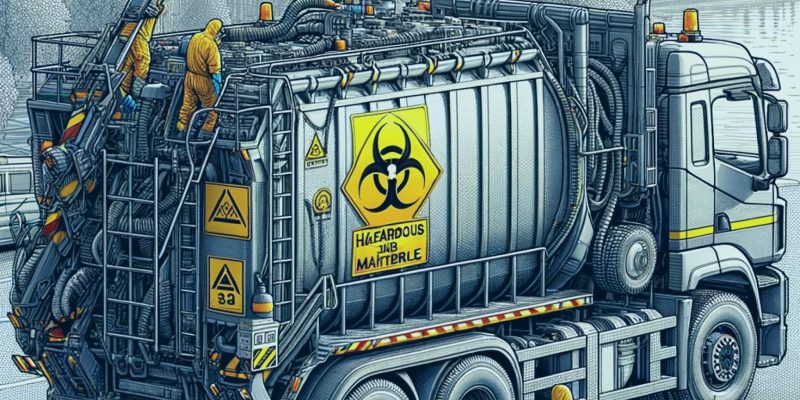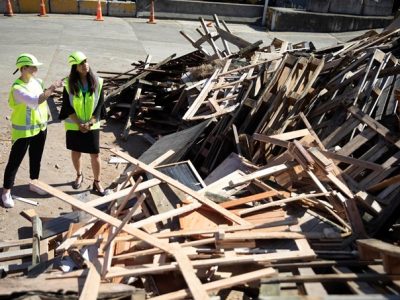The proper management and handling of hazardous waste is a crucial aspect of environmental protection and workplace safety that requires careful attention. Hazardous waste refers to a wide range of materials that present substantial risks to public health and the environment as a result of their chemical, biological, physical, or radioactive properties. It is essential to have a comprehensive understanding of these materials, their potential for harm, and the obligations of businesses involved in hazardous waste cleanup in order to ensure the protection of public health and safety.
Following this understanding, it becomes imperative for entities handling hazardous waste to adhere strictly to regulatory standards and best practices for the collection, storage, transportation, disposal, and cleanup of these materials. Failure to properly manage hazardous waste can lead to significant environmental degradation, legal penalties, and harm to human health. Consequently, it is not only a legal obligation but also a moral responsibility for companies to invest in proper hazardous waste cleanup techniques, employee training, and the implementation of safety measures to mitigate the risks associated with hazardous waste. Implementing these practices not only safeguards public health and the environment but also enhances the reputation and financial stability of businesses by avoiding costly litigation and cleanup efforts and ensuring effective hazardous waste cleanup.
Hazardous Waste: A Closer Look
Hazardous waste is a term used to describe a wide variety of materials that pose a threat to human health and the environment. These materials can encompass a range of items including but not limited to medical waste such as used syringes and contaminated bandages, radioactive materials like spent nuclear fuel, waste residues from dry cleaning solvents, biological waste such as used cultures, and discarded materials from manufacturing operations containing toxic chemicals. The danger associated with hazardous waste lies in its potential to cause significant harm to the environment and human health through contamination of air, water, and soil.
The management and disposal of hazardous waste require stringent regulations and careful practices to mitigate its harmful impacts. Governments and organizations worldwide have established guidelines for the safe handling, treatment, and disposal of such materials to protect public health and the environment. These measures include the categorization of waste types, secure and contained transportation, and the development of specialized facilities for treatment and disposal, like incinerators and secure landfill sites. Despite these efforts, challenges such as illegal dumping, insufficient waste treatment infrastructure, and the need for greater public awareness about the dangers of hazardous waste persist, underscoring the importance of ongoing vigilance and innovation in waste management practices.
The Role of Hazardous Waste Cleanup Companies
Companies like HCI Environmental, which specialize in hazardous waste cleanup, play a crucial role in managing these risks. They are equipped with the training, knowledge, and tools required to safely handle hazardous materials. Their job descriptions encompass a variety of duties, all aimed at preventing harm to the public and the environment. This includes safely disposing of waste, remedying contaminated sites, and providing emergency response services.
Given the critical nature of their work, companies like HCI Environmental not only contribute to the safety and well-being of communities but also play an essential role in the ecological sustainability of our planet. Through their meticulous efforts in waste disposal and site rehabilitation, they ensure that the adverse effects on the environment are minimized. Their expertise in managing hazardous situations, coupled with their commitment to environmental stewardship, underscores the importance of their services in today’s increasingly industrialized world.
The Importance of Professional Intervention
While self-sufficiency in maintenance and repairs is often encouraged, the handling of hazardous substances is a field that requires specialized knowledge and expertise. This is particularly true for tasks involving hazardous waste, which can pose significant risks if not managed properly. Hazardous materials can enter the body through ingestion, inhalation, or skin absorption, potentially leading to severe health issues. Thus, it’s crucial for individuals and businesses to collaborate with professional waste disposal companies for such tasks.
Furthermore, engaging with professional waste disposal companies not only ensures the safe and compliant removal of hazardous waste but also promotes environmental sustainability. These experts are equipped with the necessary tools and techniques to minimize pollution and prevent the contamination of soil and water resources. By prioritizing collaboration with these specialists, individuals and businesses not only safeguard their health and well-being but also contribute to the protection of our planet for future generations. This approach underscores the importance of responsible waste management practices in preserving public health and environmental integrity.
Addressing Biological and Drug-Related Hazards
Specialized cleaning services, such as the ones provided by hazardous waste management companies, play a critical role in dealing with biohazards and drug-related waste. These services encompass the safe and secure removal and disposal of potentially infectious materials such as blood, human remains, and other biological hazards. Adherence to stringent regulations governing the proper handling of these materials is imperative to prevent contamination and the transmission of diseases.
Moreover, proper disposal of illegal drugs and expired medical supplies is crucial due to the potential environmental and health hazards they pose. Cleanup teams are essential in these situations, particularly after police raids or medical emergencies, to guarantee the secure and efficient removal of these substances, minimizing any harmful impacts on the environment and public health.
Conclusion
The management of hazardous waste is an intricate and essential component of safeguarding both the environment and public health. To effectively handle hazardous materials, it is necessary to enlist the services of specialized companies with the expertise to safely manage, dispose of, and remediate these substances. Recognizing the significance of proper hazardous waste management and the pivotal role of professional cleanup services is crucial in advancing efforts to establish a safer and healthier environment for everyone.
In conclusion, taking definitive steps towards enhanced hazardous waste management is imperative for the well-being of our planet and its inhabitants. By acknowledging the importance of this issue and engaging with skilled professionals dedicated to environmentally responsible waste disposal, we can make significant strides in creating a safer, cleaner world. Learn more about how you can contribute to these vital efforts by clicking here. Together, we can pave the way for a sustainable future.












Comments